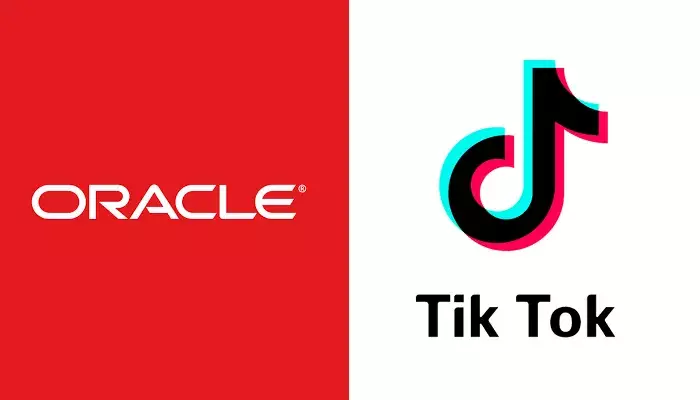The saga surrounding TikTok’s future in the United States continues to unfold, with Oracle poised as a potential partner in a deal aimed at securing TikTok’s operations. The complex backdrop of this situation showcases the interweaving of global politics, technology, and market dynamics. As raised concerns about data privacy and national security have echoed through various channels, the Biden administration’s cautious approach contrasts sharply with former President Trump’s impulsive maneuvers.
The stakes in these negotiations cannot be understated. TikTok, the popular video-sharing app owned by Chinese firm ByteDance, signifies not just a cultural phenomenon but a significant technological asset. Matter-of-factly, the U.S. government is navigating an intricate landscape filled with competing interests, existing regulations, and the inevitable scrutiny from both domestic and international actors. Thus, Oracle’s involvement, amidst growing apprehension about the app’s implications, could shift the balance of power within this ongoing debate.
Oracle’s Strategic Position
Oracle’s emergence as a leading contender to collaborate with TikTok stems from its established relationship with ByteDance and shared history of initiatives like “Project Texas.” While Trump’s administration had initially approached Oracle as a solution to ongoing concerns regarding national security, this revival of interest may reflect broader strategic aims, in contrast to a merely profit-driven partnership.
Larry Ellison, Oracle’s CEO, is not only a corporate titan but is also connected to high-stakes politics through his friendship with Trump. This relationship may give Oracle a more favorable stance in negotiations, elevating corporate interests through a lens of political strategy. By blending technological infrastructure with political acumen, Oracle might provide a systematic solution that appeases both U.S. regulators and ByteDance.
However, it raises an essential question: should companies like Oracle intertwine corporate interests with political alliances? While the advantages could lead to innovative partnerships, it risks compromising corporate integrity, wherein businesses become enmeshed in the machinations of power rather than bolstering public interest.
The Harsh Realities of Global Regulation
Despite the apparent win-win scenario presented through potential Oracle-TikTok collaboration, the complexities of international law remain a formidable hurdle. China’s firm stance against extreme sell-offs of technology underlines the intricate dance that companies must choreograph on the world stage. The Chinese government has warned that the proprietary algorithms of TikTok are non-negotiable, illuminating the friction inherent in cross-border operations of technology firms.
As discussions progress, the U.S. must grapple with its regulatory approach to foreign tech firms. Should an ultimatum like forced acquisition trigger diplomatic tensions? The hesitation from the Chinese Communist Party emphasizes that navigating global alliances requires a delicate balance of negotiation, accommodation, and, at times, concession.
Trump’s government initiated this regulatory framework, but the Biden administration’s evolving stance will inevitably shape the landscape moving forward. Legislation limiting TikTok’s operations unless U.S. ownership is on the table reflects a bipartisan consensus regarding concerns over data privacy and national security. This multifaceted situation reveals an imperative: the U.S. must find a path that fosters innovation while addressing legitimate safety concerns.
The Implications of TikTok’s Existence
TikTok’s potential future in America is not merely a technological issue; it’s emblematic of broader themes impacting digital culture. As the platform continues to thrive with millions of active users, debates surrounding ownership and data security should provoke critical conversations about the ethical responsibilities of tech firms.
The excitement around TikTok also showcases the generational divide in how information is consumed and shared online. This cultural shift towards more dynamic, user-generated content should prompt a reevaluation of regulatory frameworks to better accommodate new forms of expression. As policymakers grapple with these responsibilities, they must incorporate the voices and insights of the very users whom this regulation will affect most directly.
In essence, the TikTok-Oracle saga is more than a corporate partnership; it is a reflection of a digital age in flux, urging all stakeholders to engage thoughtfully in the complexities of technology policy for the future. The interplay of cultural resonance and regulatory demands will ultimately define the path forward—one that should prioritize both innovation and ethical considerations.


Leave a Reply